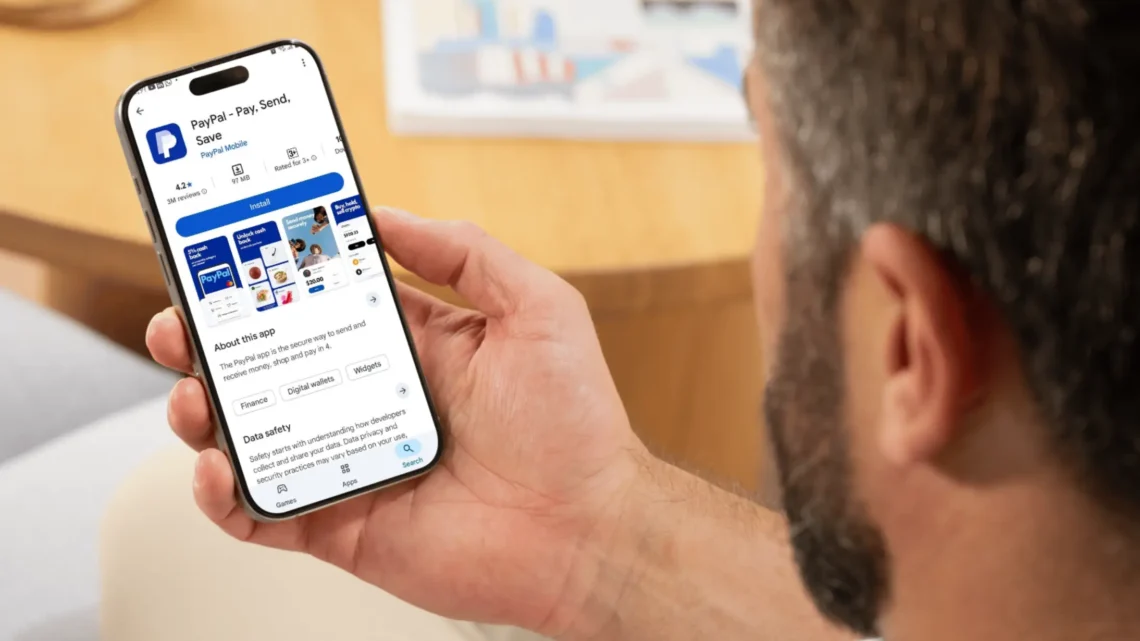
The Many Uses of PayPal: From Everyday Payments to Business Powerhouse
If you’ve ever worked freelance or needed to send money to another person in another country, you’ve probably heard of PayPal.
And as the financial technology (fintech) company approaches its 25th anniversary, it’s about to launch PayPal World, its next venture.
Trending Now!!:
The veteran of the payments industry shows no signs of slowing down.
Many people consider PayPal a convenient way to transfer money to other PayPal users, and it is. However, for personal and business customers, it offers so much more that many customers aren’t aware of.
Here’s a look at PayPal’s 25-year journey from start-up to fintech powerhouse, what benefits it provides to personal and business customers, and what its plans are for the future.
Early History
In 1998, three entrepreneurs, Max Levchin, Peter Thiel, and Luke Nosek, launched a company called Confinity, which managed security software for mobile devices.
A year later, it switched directions and became an online money transfer service. In 2001, they merged Confinity with Elon Musk’s X.com, which at that time was an online financial services company, and PayPal was born. This merger set the stage for PayPal to become synonymous with online payments before fintech was even a term.
eBay was the first online marketplace to adopt PayPal into its site, and in October 2002 bought the company for $1.5 billion. In 2015, PayPal was spun off into its own public entity.
In 2018, wanting to branch out into the point of sale (POS) market, PayPal acquired iZettle for $2.2 million.
Initially, PayPal was created for leisure customers only as a straightforward way to transfer money to another person, regardless of where they lived. Today, its personal customer offering has expanded considerably.
PayPal for Personal Use
PayPal is so much more than a way to send and receive money digitally, although that’s a massive part of its business. You can link other banks’ credit and debit cards to your PayPal wallet and use that to shop online securely. You can also pay other people for goods and services if they have a PayPal account.
PayPal is available in 200 countries, and the offerings in each country differ due to regulations. In the US, PayPal has its own branded Mastercard where residents can shop wherever that logo is displayed. Its Mastercard can even be added to its competitors’ (Apple Pay and Google Pay) wallets.
In Australia, the UK, and Italy, PayPal allows users to buy, hold, and sell select digital assets—Bitcoin, Ethereum, Litecoin, and Bitcoin Cash. They’re the first of PayPal’s markets to embrace cryptocurrency, but they won’t be the last. PayPal’s success in this market lies in its reputation for security—a critical factor that many crypto competitors still struggle to match.
PayPal is branching out into leisure markets; there are even PayPal-friendly online casinos in Canada that allow you to make deposits and withdrawals via its digital wallet, enabling you to easily play games such as poker, roulette, and slots.
After its acquisition by eBay, PayPal opened the door to provide merchant services, so it expanded into the business market. Organizations using PayPal gain access to additional features and benefits.
PayPal for Businesses
PayPal has 35 million active business accounts, ranging from sole traders and freelancers to online and offline merchants.
Primarily used to send, receive, and manage online and in-person payments, it also facilitates payments via credit/debit cards, Venmo (which it owns), and “buy later” options.
It can also use QR codes and payment links for contactless transactions. At checkout, PayPal supports multiple payment methods and local currency transactions. It can also integrate with e-commerce platforms and online stores.
PayPal’s business use doesn’t end there; it can also create and send invoices, manage subscriptions, and perform recurring payments.
Business owners can grant multiple users access with customized permissions and apply for business loans and working capital in eligible regions. In the USA, PayPal offers a Business Mastercard with a cashback option.
Advanced features for businesses include multi-currency support, access to seller protection, dispute resolution, invoicing, recurring billing, analytics, and detailed cash flow reporting. For SMEs lacking access to traditional banking infrastructure, its all-in-one invoicing and currency conversion tools make it indispensable.
PayPal’s Future Is Bright
As of 2025, PayPal has 436 million active user accounts worldwide, which is a 2% increase from 2024. It also reported a revenue growth of 5%. Its two main rivals, Apple Pay and Google Pay, are what PayPal needs to focus on to ensure they don’t ever overtake it.
Currently, PayPal holds a dominant 47.43% share globally, while Apple Pay has around 14.22% and Samsung Pay 14%. Although far behind, they could catch up and eventually knock PayPal off its throne.
PayPal is set to launch PayPal World at the end of 2025. This joint venture with Mercado Pago, NPCI International Payments Limited (UPI), and Tenpay Global will bring all these digital wallets under one umbrella.
CEO Alex Chriss has emphasized blockchain expansion as central to PayPal’s next phase. It has its eyes set on Singapore, Canada, and Switzerland in the next year, with other European countries to follow shortly. Along with the other major cryptocurrencies, PayPal has its own stablecoin, PYUSD, a secure digital dollar option backed by U.S. dollar deposits, U.S. Treasuries, and cash equivalents.
For approved US accounts, buying, selling, holding, or transferring is fee-free. It’s being rolled out to 10 blockchains by the end of 2025. PayPal’s investment in blockchain signals its intent to stay ahead of decentralized finance rather than compete with it.
As you’ve just read, what started as a way for people to digitally transfer funds to each other has now become a financial powerhouse. Personal customers can link PayPal to their digital wallets.
In the US, they can get a Mastercard; in the UK, Australia, and Italy, they can trade cryptos, and in Canada, fund leisure play like casinos. Business customers can utilize merchant services, have their invoicing and billing automated, and use QR codes for payments.
There’s no stopping PayPal as it remains the juggernaut of the fintechs.


